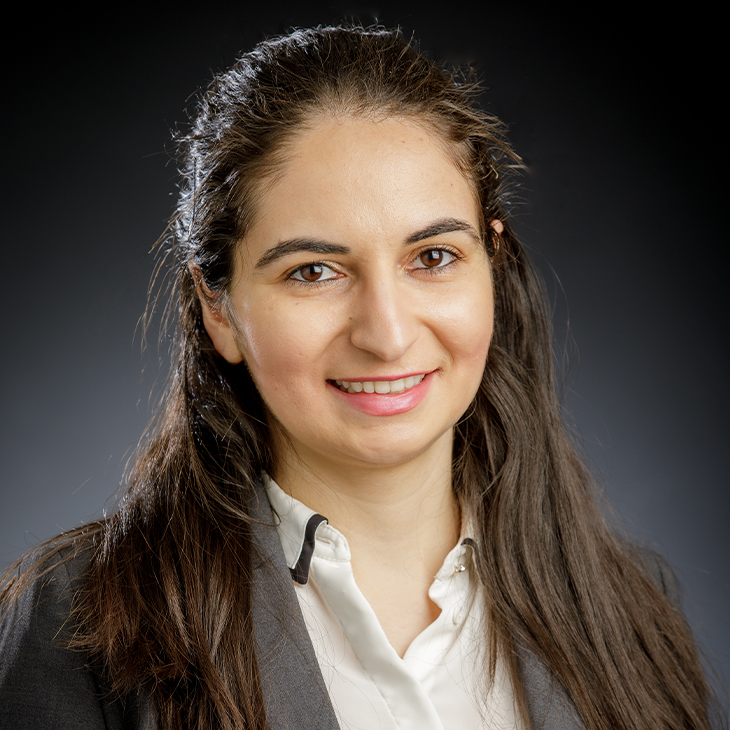
VR flight training method earns OSU researcher NSF Early CAREER Award
Wednesday, April 19, 2023
Media Contact: Jeff Hopper | Marketing Media Specialist | 405-744-2745 | jeff.hopper@okstate.edu
Dr. Nicoletta Fala, assistant professor of mechanical and aerospace engineering at Oklahoma State University, has earned an Early CAREER Award from the National Science Foundation (NSF) for her research on the use of virtual reality (VR) in flight simulation to advance and promote research and positive skill transfer in enhanced flight training.
The College of Engineering, Architecture and Technology (CEAT) researcher believes that standard flight training and research could be augmented and advanced using VR flight simulation hardware and software applications, which could have a significant impact in addressing the world’s ongoing pilot shortages.
“If we have the right virtual reality software and curriculum design, we could use that to maintain pilot proficiencies and skills, thus reducing the cost of training and obstacles to entry into flight-related research, as well as accidents occurring due to lapses in training,” Fala said.
She believes that, while not all skills can be learned via VR training, there are a plethora of crucial flight skills that could be initially introduced and trained using environments outside of actual aircraft and traditional flight simulators.
“Current in-aircraft and simulated flight training requires resources that are both expensive and need large and specific footprint to operate,” Fala said. “However, if a VR training simulator is proven to be just as effective as traditional methods of instruction, we could significantly reduce the cost to train both new and current pilots.”
Fala hypothesizes that flight skills that require more visual fidelity, as opposed to movement fidelity, could be adaptable to a VR environment. She noticed during a preliminary experiment that when her research students were asked to complete a “turn around a point” maneuver, used to train students to account for wind in their control inputs when circling a stationary point, the students struggled in a traditional flight simulator environment due to a lack of field of view. However, when asked to complete the same maneuver in a VR environment, the students were able to complete the task more easily because of the ability of VR to produce a 360 degree view for users.
While this particular task was deemed a “win” for the VR environment, Fala and her team have also identified challenges that students, instructors and current pilots could face using this new simulation approach. Pilot interactions, whether with an instructor or avionics, will face challenges in a VR environment.
“In order to make this project successful, the first thing we must focus on is overcoming the challenges we’ve identified, such as developing a way to overcome student-instructor interactions and communication in the training environment,” Fala said. “Also, many modern aircraft have digital avionics which require pilot interaction and input to operate, which can be harder to replicate in a virtual environment.”
The NSF CAREER Award will allow Fala and her team to overcome and answer those challenges and questions encountered while creating and developing a viable way for new and current pilots alike to augment their training, making it easier to grow the pilot population and bolster recurrent training in a more cost- and time-efficient manner.
“Receiving this award has been a goal of mine since I was a graduate student and my own advisor received a CAREER award,” Fala said. “I am passionate about all components of the project: education, research, and implementation, so it seemed like it was made for me. It’s nice to have someone else believe in your work. It’s easy to formulate an idea and believe that it is a good idea in your own silo, but to also have the recognition of your peers and others in the research area agree is very rewarding.”
The Faculty Early Career Development (CAREER) Program offers the National Science Foundation's most prestigious awards in support of early-career faculty who have the potential to serve as academic role models in research and education and to lead advances in the mission of their department or organization. Activities pursued by early-career faculty should build a firm foundation for a lifetime of leadership in integrating education and research.
